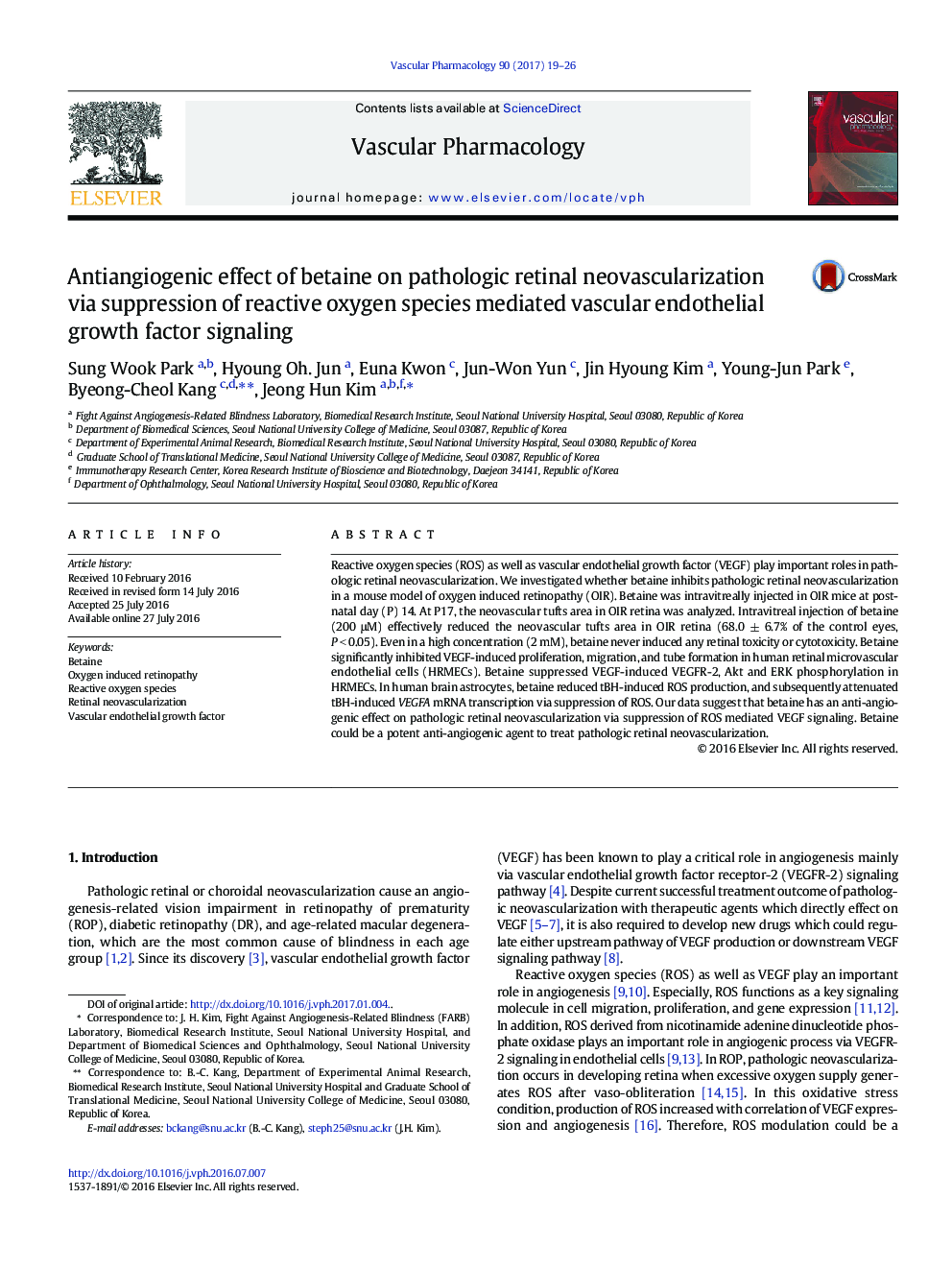| کد مقاله | کد نشریه | سال انتشار | مقاله انگلیسی | نسخه تمام متن |
|---|---|---|---|---|
| 5558874 | 1561228 | 2017 | 8 صفحه PDF | دانلود رایگان |
Reactive oxygen species (ROS) as well as vascular endothelial growth factor (VEGF) play important roles in pathologic retinal neovascularization. We investigated whether betaine inhibits pathologic retinal neovascularization in a mouse model of oxygen induced retinopathy (OIR). Betaine was intravitreally injected in OIR mice at postnatal day (P) 14. At P17, the neovascular tufts area in OIR retina was analyzed. Intravitreal injection of betaine (200 μM) effectively reduced the neovascular tufts area in OIR retina (68.0 ± 6.7% of the control eyes, P < 0.05). Even in a high concentration (2 mM), betaine never induced any retinal toxicity or cytotoxicity. Betaine significantly inhibited VEGF-induced proliferation, migration, and tube formation in human retinal microvascular endothelial cells (HRMECs). Betaine suppressed VEGF-induced VEGFR-2, Akt and ERK phosphorylation in HRMECs. In human brain astrocytes, betaine reduced tBH-induced ROS production, and subsequently attenuated tBH-induced VEGFA mRNA transcription via suppression of ROS. Our data suggest that betaine has an anti-angiogenic effect on pathologic retinal neovascularization via suppression of ROS mediated VEGF signaling. Betaine could be a potent anti-angiogenic agent to treat pathologic retinal neovascularization.
99
Journal: Vascular Pharmacology - Volume 90, March 2017, Pages 19-26
